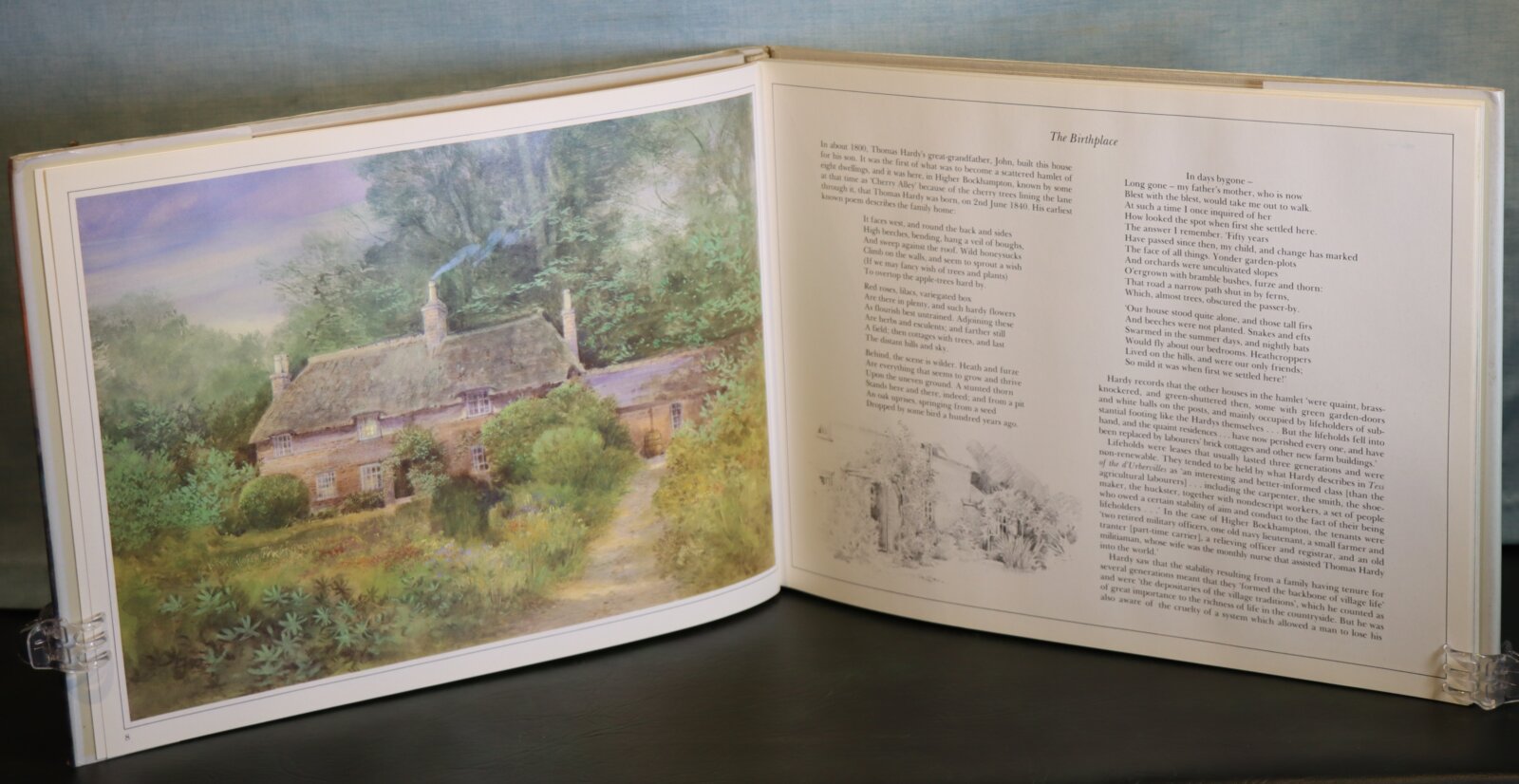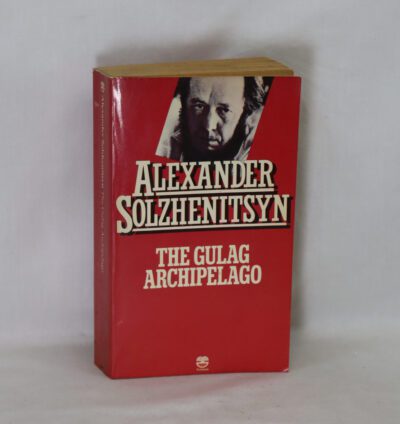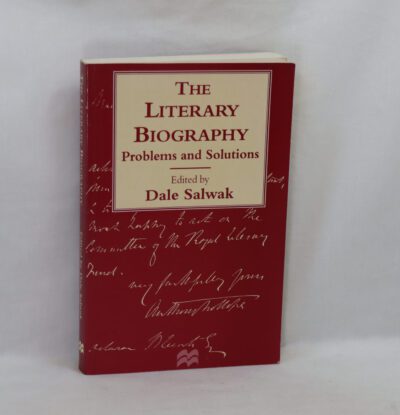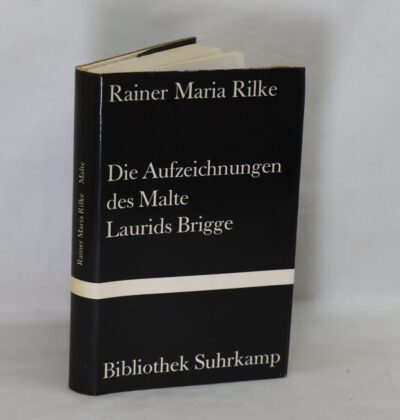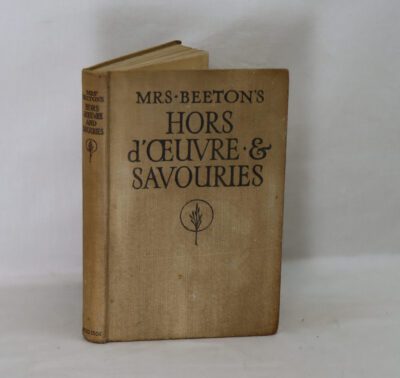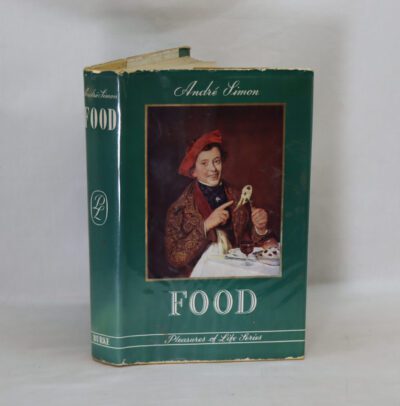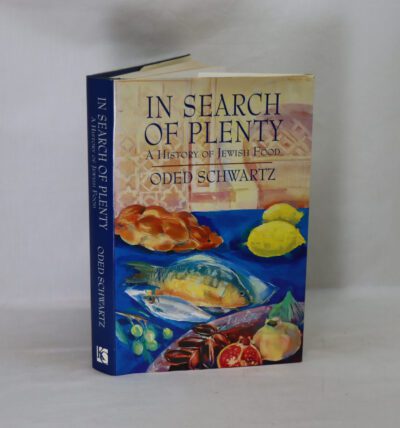Hardy Landscapes. Gordon Beningfield.
ISBN: 9780230597921
Printed: 1990
Publisher: Penquin Group. London
Edition: First edition
| Dimensions | 35 × 25 × 2 cm |
|---|---|
| Language |
Language: English
Size (cminches): 35 x 25 x 2
Condition: Fine (See explanation of ratings)
Item information
Description
In the original dust sheet. Cream cloth with gilt title on the spine.
It is the intent of F.B.A. to provide an in-depth photographic presentation of this book offered so to almost stimulate your feel and touch on the book. If requested, more traditional book descriptions are immediately available.
Thomas Hardy used a fictionalized Wessex as a setting for many of his novels, adopting his friend William Barnes’ term Wessex for their home county of Dorset and its neighbouring counties in the south and west of England. Hardy’s Wessex excluded Gloucestershire and Oxfordshire, but the city of Oxford, which he called “Christminster”, was visited as part of Wessex in Jude the Obscure. He gave each of his Wessex counties a fictionalized name, such as with Berkshire, which is known in the novels as “North Wessex”.
Wessex ‘the Kingdom of the West Saxons’) was an Anglo-Saxon kingdom in the south of Great Britain, from 519 until England was unified by Æthelstan in 927.
The Anglo-Saxons believed that Wessex was founded by Cerdic and Cynric, but this may be a legend. The two main sources for the history of Wessex are the Anglo-Saxon Chronicle and the West Saxon Genealogical Regnal List, which sometimes conflict. Wessex became a Christian kingdom after Cenwalh was baptised and was expanded under his rule. Cædwalla later conquered Sussex, Kent and the Isle of Wight. His successor, Ine, issued one of the oldest surviving English law codes and established a second West Saxon bishopric. The throne subsequently passed to a series of kings with unknown genealogies.
During the 8th century, as the hegemony of Mercia grew, Wessex largely retained its independence. It was during this period that the system of shires was established. Under Egbert, Surrey, Sussex, Kent, Essex, and Mercia, along with parts of Dumnonia, were conquered. He also obtained the overlordship of the Northumbrian king. However, Mercian independence was restored in 830. During the reign of his successor, Æthelwulf, a Danish army arrived in the Thames estuary, but was decisively defeated. When Æthelwulf’s son, Æthelbald, usurped the throne, the kingdom was divided to avoid war. Æthelwulf was succeeded in turn by his four sons, the youngest being Alfred the Great.
Wessex was invaded by the Danes in 871, and Alfred was compelled to pay them to leave. They returned in 876 but were forced to withdraw. In 878 they forced Alfred to flee to the Somerset Levels, but were eventually defeated at the Battle of Edington. During his reign Alfred issued a new law code, gathered scholars to his court and was able to devote funds to building ships, organising an army and establishing a system of burhs. Alfred’s son, Edward, captured the eastern Midlands and East Anglia from the Danes and became ruler of Mercia in 918 upon the death of his sister, Æthelflæd. Edward’s son, Æthelstan, conquered Northumbria in 927, and England became a unified kingdom for the first time. Cnut the Great, who conquered England in 1016, created the wealthy and powerful earldom of Wessex, but in 1066 Harold Godwinson reunited the earldom with the crown and Wessex ceased to exist.
Thomas Hardy OM (2 June 1840 – 11 January 1928) was an English novelist and poet. A Victorian realist in the tradition of George Eliot, he was influenced both in his novels and in his poetry by Romanticism, including the poetry of William Wordsworth. He was highly critical of much in Victorian society, especially on the declining status of rural people in Britain, such as those from his native Southwest England.
While Hardy wrote poetry throughout his life and regarded himself primarily as a poet, his first collection was not published until 1898. Initially, he gained fame as the author of novels such as Far from the Madding Crowd (1874), The Mayor of Casterbridge (1886), Tess of the d’Urbervilles (1891), and Jude the Obscure (1895). During his lifetime, Hardy’s poetry was acclaimed by younger poets (particularly the Georgians) who viewed him as a mentor. After his death his poems were lauded by Ezra Pound, W. H. Auden and Philip Larkin.
Many of his novels concern tragic characters struggling against their passions and social circumstances, and they are often set in the semi-fictional region of Wessex; initially based on the medieval Anglo-Saxon kingdom, Hardy’s Wessex eventually came to include the counties of Dorset, Wiltshire, Somerset, Devon, Hampshire and much of Berkshire, in southwest and south central England. Two of his novels, Tess of the d’Urbervilles and Far from the Madding Crowd, were listed in the top 50 on the BBC’s survey The Big Read.
Gordon George Beningfield (31 October 1936, Bermondsey – 4 May 1998, London) was an English wildlife artist, broadcaster and naturalist known for his watercolour artworks, most notably of butterflies.
In 2015, the Countryside Restoration Trust announced the ‘Gordon Beningfield Dorset Farm Appeal’. The appeal aimed to turn Beningfield’s dream of a working, wildlife-friendly farm in Hardy’s Dorset, into a reality by raising £1 million. Shortly after the appeals launch, it was announced that Dame Judi Dench would serve as its patron.
Please see F.B.A. s range of prints and pictures to be found in F.B.A.’s picture section located in Artifacts
Want to know more about this item?
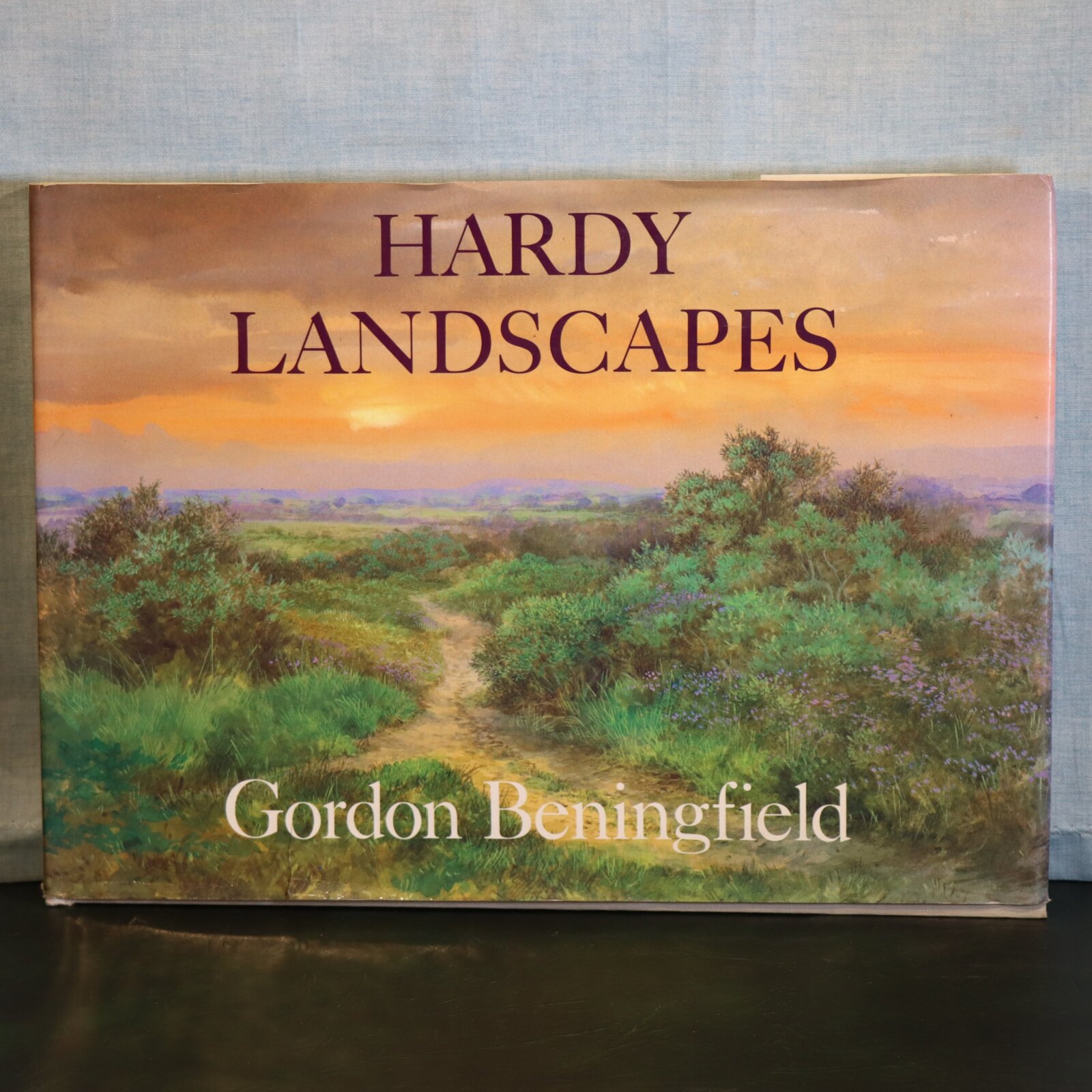
Share this Page with a friend

